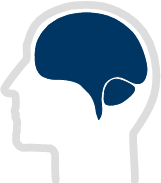International Graduate School of Neuroscience

Colloquium
Thyroid hormones and cortical neurodevelopment:etiological implications for psychiatric diseases
Monday, September 15, 2014, 9.30 a.m., Seminar Room FNO - 01 / 117
- Pere Berbel
- Department of Histology and Anatomy, Faculty of Medicine,University Miguel Hermández, Alicante, Spain
Thyroid hormones exert both genomic and non-genomic actions in many tissues, organs and systems over the course of a lifetime. In particular, they are crucial during early neuro- development, since key phases of CNS development depend on the expression of genes regulated by thyroid hormones. These genes affect, among other things, proliferation, migration and maturation of neurons and glial cells which under certain circumstances can result in abnormal connectivity and consequent behavioral dysfunction. Morphofunctional alterations occurring during pregnancy and early postnatal development are permanent and constitute a risk factor for the development of behavioral and mental disorders later in life.In our seminar, crucial phases of cerebral cortex development will be discussed as well as recent data on the hippocampal distribution, ratio and size of vesicular glutamatergic and GABAergic transporter immunoreactive (VGLUT1-ir, VGAT-ir) buttons in fetal and early postnatal hypothyroid rat pups. In methimazole (MMI) pups both prepulse inhibition and acoustic startle response were reduced, while the time spent in open arms during behavioral testing increased, indicating attention deficit and an anxiety-like behavior.The understanding of how thyroid hormones regulate important phases of development may help to understand altered regulatory mechanisms in neurodevelopmental diseases such as autism spectrum disorders (ASD), attention deficit-hyperactivity disorders (ADHD), schizophrenia and epilepsy where cytoarchitectonic alterations similar to those found in hypothyroidism and hypothyroxinemia occur and vice versa. Despite the obvious differences between humans and other mammals in cortical organization and function, animal models might prove useful in the understanding of common etiological factors in hypothyroidism and ASD since evolutionary developmental biology tells us that both rodents and humans share homologous gene pathways involved in these diseases.
Host
- Irmgard Dietzel-Meyer
Molecular Neurobiochemistry, Faculty of Chemistry and Biochemistry, Ruhr-University Bochum
